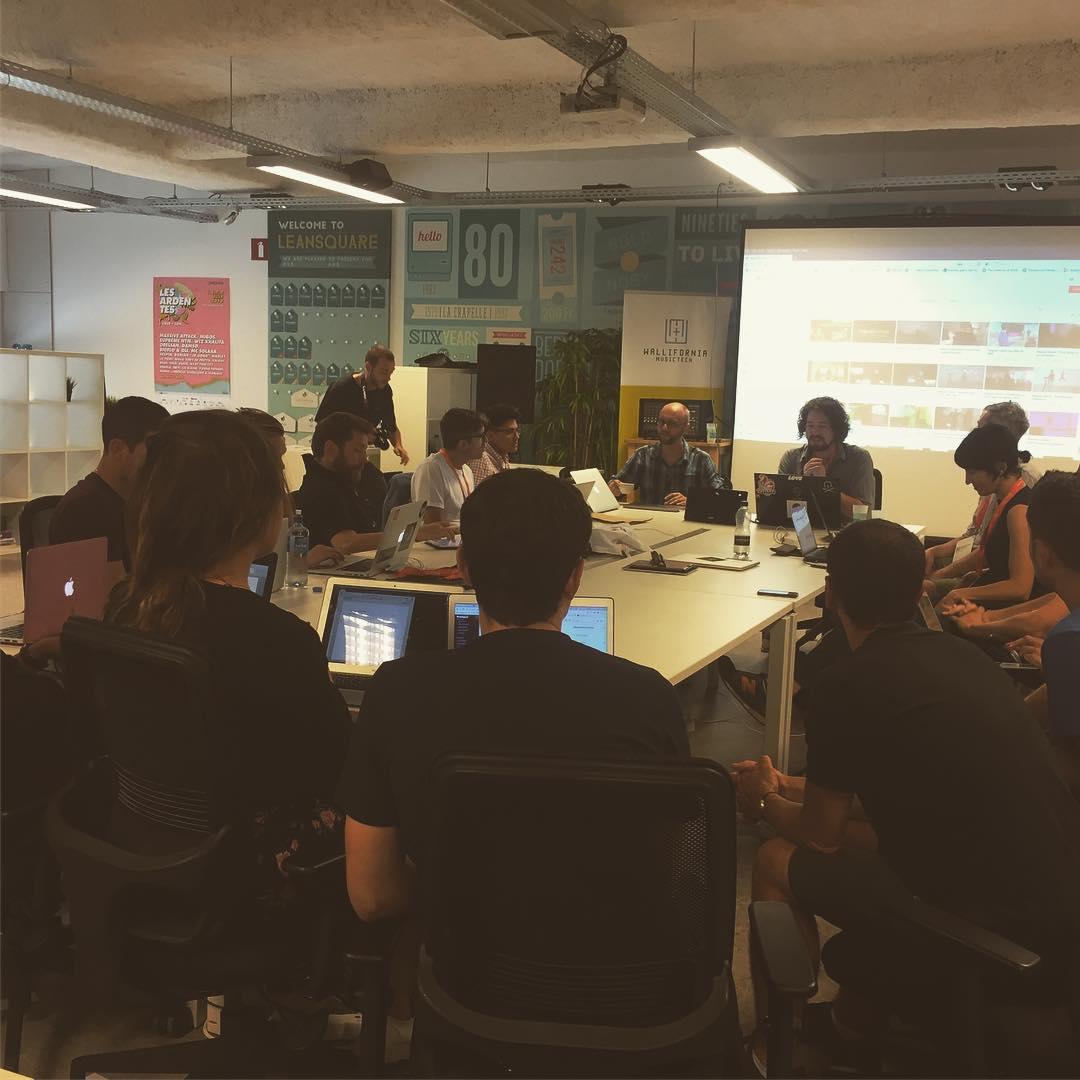Wallifornia MusicTech 2018: Panel and Hackathon
This week, I headed to the Wallifornia MusicTech 2018 as a panel speaker and mentor. I was very excited about going to Liège in Belgium, taking the Eurostar train from London, and discover more about the Wallifornia MusicTech event. I was curious about this event with a witty name of the California of Wallonia (the French part of Belgium). I found the two days refreshing and inspiring, which were divided into (1) a panel of discussion with start-ups about innovation in music tech on the first day, and (2) mentoring hackers during a music tech hackathon during the second day. Both activities were held in the headquarters of LeanSquare, a venture capital fund aiming to invest in start-ups of the new economy.
The panel of discussion The Disturbing Discussion About Innovation involved industry and academia experts in a roundtable format: Matthias Strobel (President MusicTech Germany), who moderated the panel, Nicolas d’Alessandro (co-founder at Hovertone), Tom Mitchell (AP Creative Technologies, UWE Bristol / Mi.mu Gloves), and myself (Centre for Digital Music, Queen Mary University of London). We shared our academic and industry work experience around innovation and music tech transfer. Matthias Strobel kicked off the discussion by presenting the panelists and showcasing the Nagual Dance, an interactive music experience based on body movement using the Kinect camera.
Then, I presented the projects within the Audio Commons ecosystem (Jamendo’s Sound and Music Search Tool, Audio Gaming’s Audio Texture, Waves Audio’s SampleSurfer, Playsound.space, the project on Bela and e-textiles, and MIRLC). I also talked about the Creative Commons licensing as a legal framework for reusing, remixing and repurposing digital audio content. Interestingly, the CC licenses were not known by all the attendees. Finally, I also mentioned about the organization Women in Music Tech (WiMT), which I co-founded and co-chaired at Georgia Tech during 2016-2017. This was presented as a successful example of raising awareness of the lack of women in our field and the actions that we can take to improve the situation (see my NIME paper for more info).
Tom Mitchell introduced his work on the Mi.mu Gloves and shared his experiences of creating a start-up having academics and nonacademics on board. Nicolas d’Alessandro talked about innovation as not necessarily connected to intention. He gave the perfect example of the Open Sound Control (OSC) protocol as an an excellent academic idea that has been embraced by the computer music community, but that in the end has not succeeded in replacing the technical standard MIDI. MIDI keeps reviving (e.g. MIDI Polyphonic Expression). OSC is broadly used instead in fast prototyping ecosystems and workflows.
Figure 1. Panel of discussion with industry experts and start-ups. Credit: Photo by @WalliforniaMusicTech.
The conversation with start-ups was lively, where we discussed the sustainability problem with “NIMEs” (related to the conference New Interfaces for Musical Expression). There was a common agreement that we need more regular spaces to meet and discuss about potential collaborations between academics and entrepreneurs. We shared the challenges of music tech innovation with each other (e.g. technology transfer, running a music tech business, how to get to know the right academic collaborators, the pressure of publish or perish, licensing, and so on). We ended the day having the opportunity to taste Boulets à la Liégeoise, a classic Belgium meatball recipe, so exquisite!
The second day was equally intensive with the Hackathon organized by Gregory Van Ass, Travis Laurendine and Luann Williams. We started the day with presentations by all the sponsors and technology providers (Proximus, Cloudinary, MOD, Native Instruments, Amazon, and so on). Then it was the turn of the mentors Emeric Florence (Founding partner at HLO), Nicolas d’Alessandro, Tom Mitchell, and I: we presented ourselves and our skills. Then we visited the nearby fabulous Fablab of Liège, 24 hours available for the hackers. Finally, the participants pitched their projects and teamed up.
The projects were quite various, ranging from an AirBnB for music rehearsal venues, a storytelling dashboard of artists based on data visualization, a smart playlist that figures out where you are, a synthesizer able to play with other people in the world using the MIDI protocol, color customization of sound waveforms and supporting QR code identification, a concert where the audience can affect with their mobile phones the behaviour of a unicorn on stage, and so on. I left the Hackathon and Liège back to London on train, having before, of course, a well-deserved Moules Frites à la Crème d’Ail. Bon Appétit!
Acknowledgments:
Thanks to Pierre Alexandre Tremblay and Nicolas d’Alessandro for the opportunity to be part of this great event. Also thanks to WalliforniaMusicTech and LeanSquare for supporting our visit and their hospitality.
